Hiking vs backpacking: how far do you want to go?
We explain the differences between hiking vs backpacking so you understand what’s needed for each type of adventure, from gear and fitness to time and permits
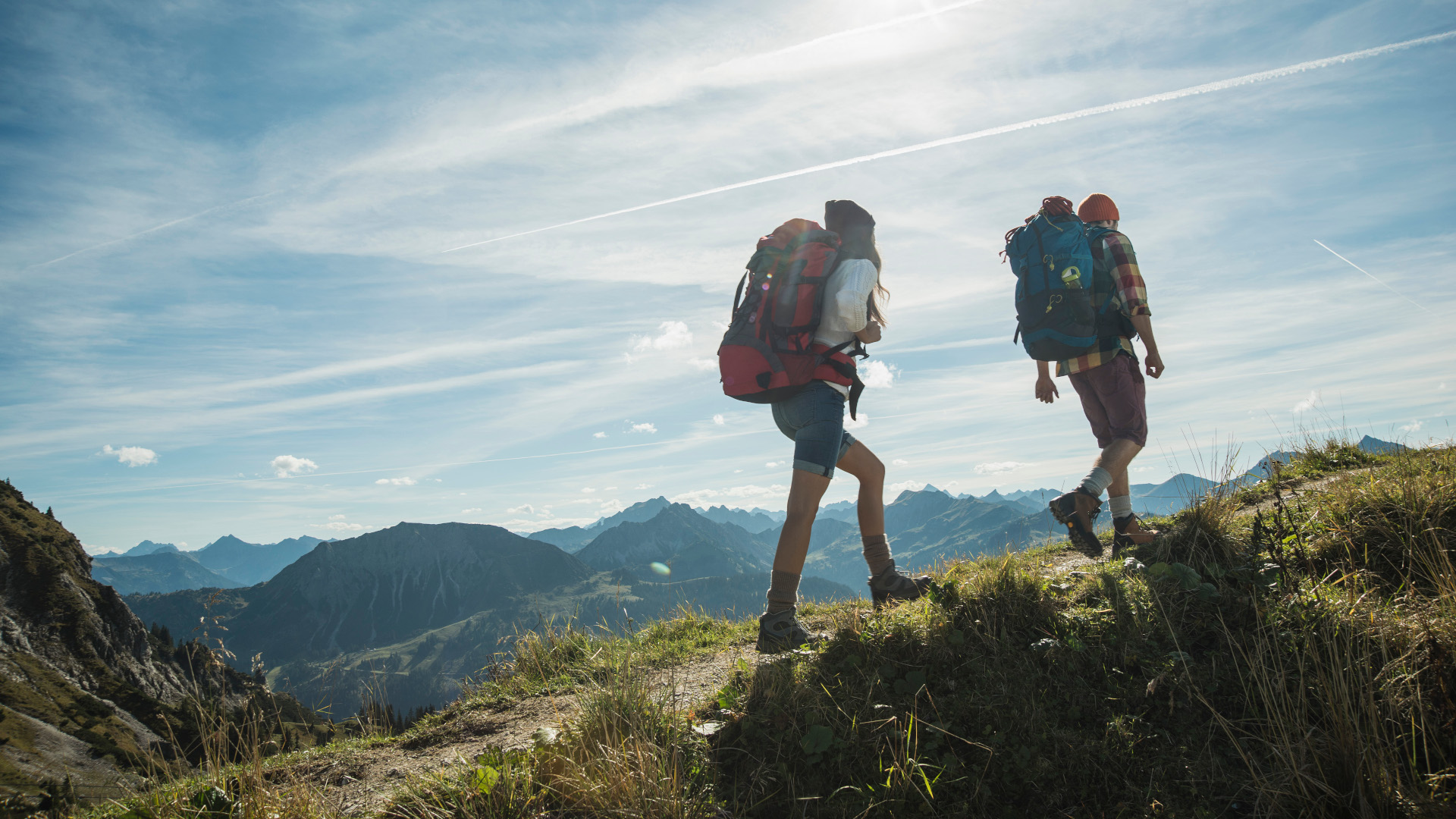
All the latest inspiration, tips and guides to help you plan your next Advnture!
You are now subscribed
Your newsletter sign-up was successful
Does all walking outdoors require carrying a massive backpack? How do you get to those magical, untouched wilderness spots that require more miles than you could possibly walk in a day? The answers to questions like these require understanding the differences between hiking vs backpacking.
The terms hiking and backpacking are often used interchangeably, and while the two activities overlap, they require vastly different gear. In this article, we explain the differences between hiking and backpacking so you understand what’s needed for each type of adventure, from gear and fitness to time and permits.
Hiking vs backpacking: what’s the difference?
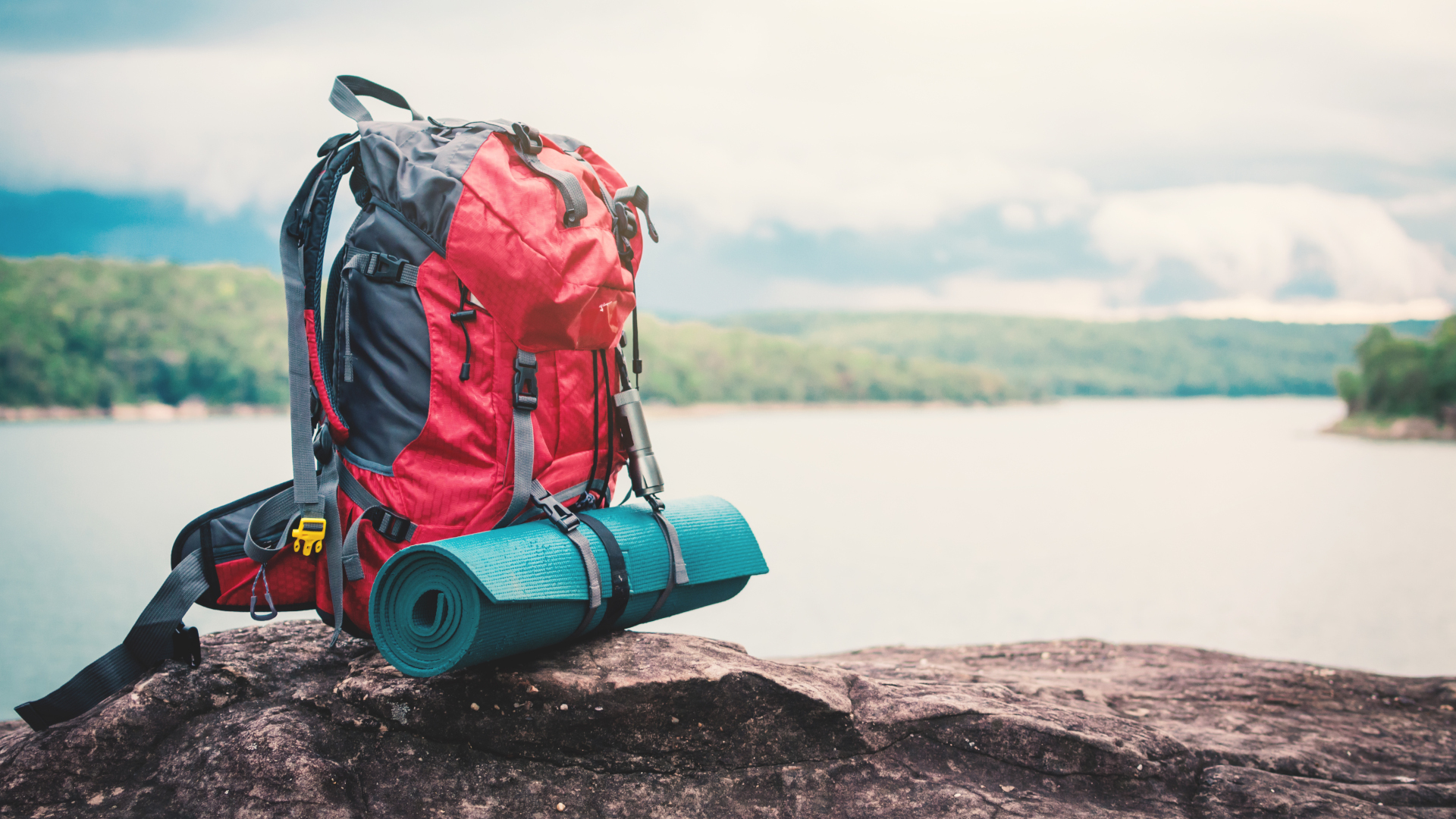
As we’ve previously written, hiking is defined as a long walk in the countryside, so backpacking is definitely a form of hiking, however not all hiking is backpacking. Backpacking is when you take a long walk in the countryside carrying your camping gear on your back and camp overnight in the wild for at least one night. Hiking doesn’t inherently involve any camping, so for our purposes, we’re defining hiking here as an activity that takes place in a single day, after which you go home and sleep in your own bed.
Hiking vs backpacking: gear
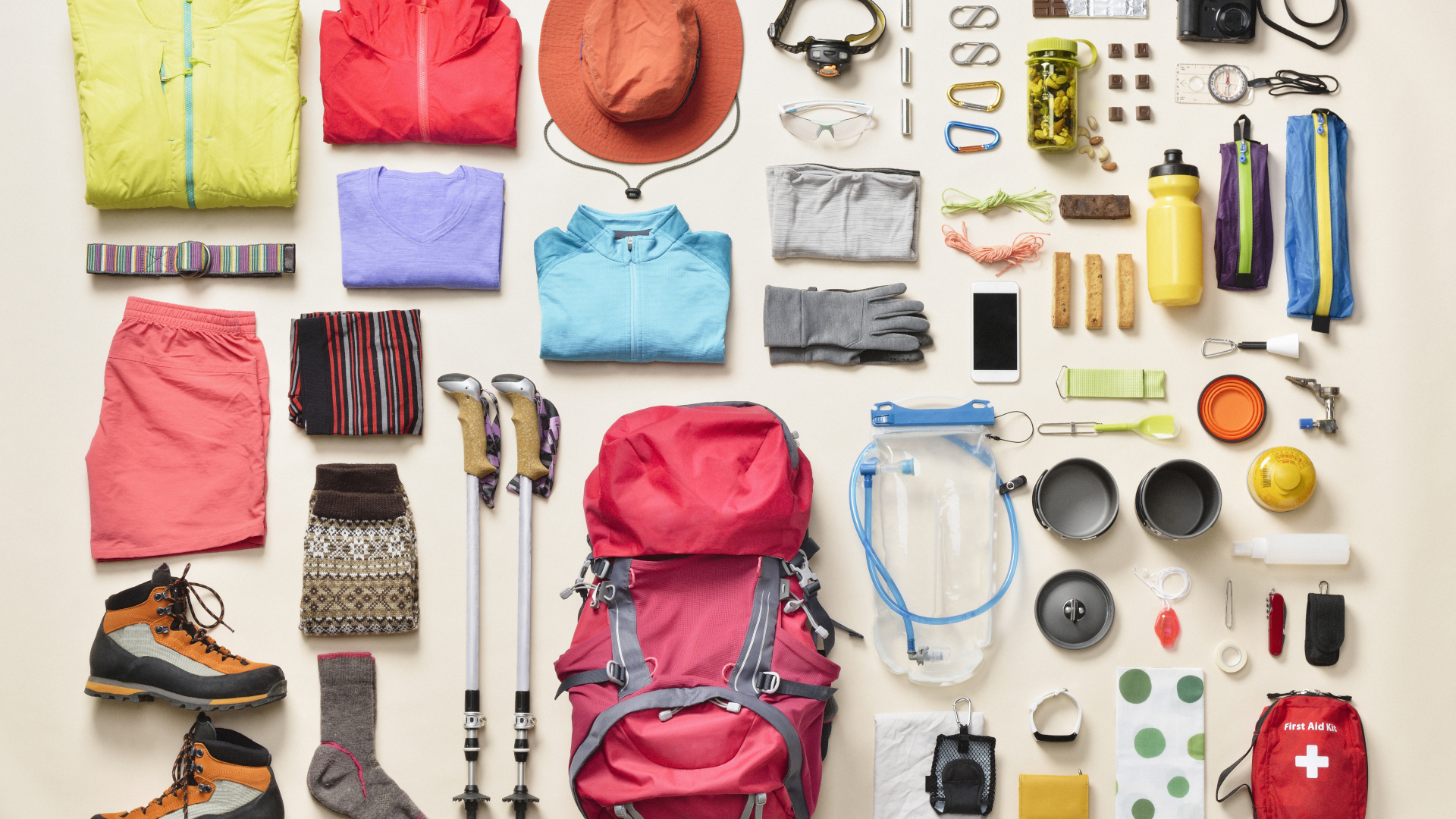
Put simply, backpacking requires a lot more gear than hiking does. What you’ll need for hiking depends on the conditions and terrain, of course, but the hiking essentials include items like hiking boots and a small backpack to carry your water bottle, extra layers and a map. Meanwhile, for backpacking you have to bring everything you need for hiking plus everything required for camping, such as a tent, camping stove, your best sleeping bag and sleeping pad. Now this obviously means backpacking is more expensive, but gear can be rented rather than bought, and while you’ll definitely be carrying more weight, there are ways to lighten your load with our ultralight camping tips.
Hiking vs backpacking: distance
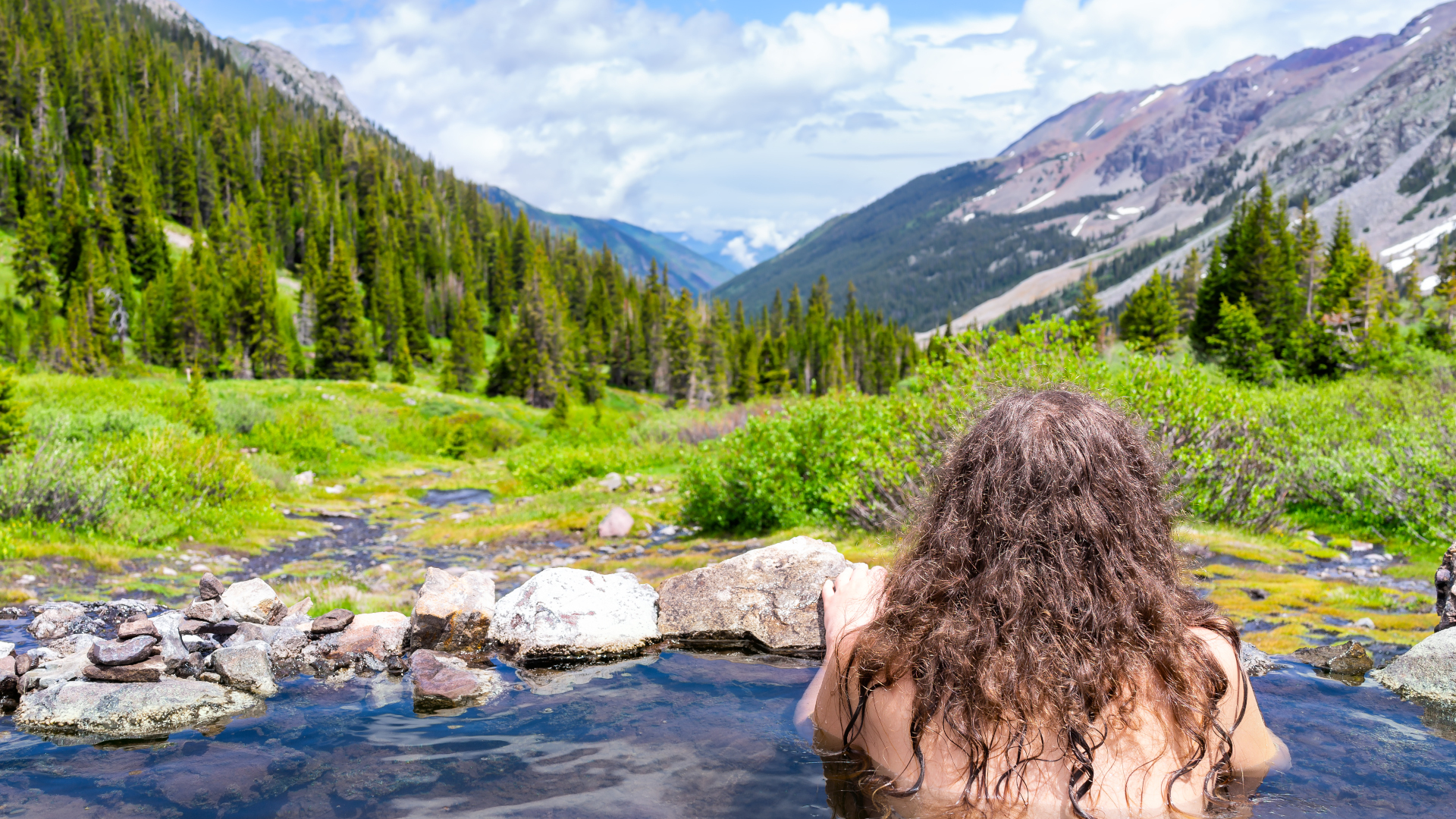
There isn’t a set distance that’s required for hiking or backpacking; rather, you’re likely to be able to go further if you’re backpacking. Though you personally may be able to clock a lot of miles in one day, when it comes to hiking on an out-and-back trail, you always have to take into account the fact that no matter how far you hike out, you have to hike the same distance back, and ideally get back to the trailhead before sunset.
With backpacking, because you’re sleeping wild, you can potentially cover twice as much distance in a day as you can on an out-and-back day hike, and then go even further the next day. This means you’ll be more likely to reach those amazing out-of-the-way spots like secret waterfalls and hidden hot springs. There are no limits to the distance you can go as long as you have the supplies and the time.
Both are an adventure, but we’ll go out on a limb here and say that backpacking is even more adventurous.
All the latest inspiration, tips and guides to help you plan your next Advnture!
Hiking vs backpacking: time
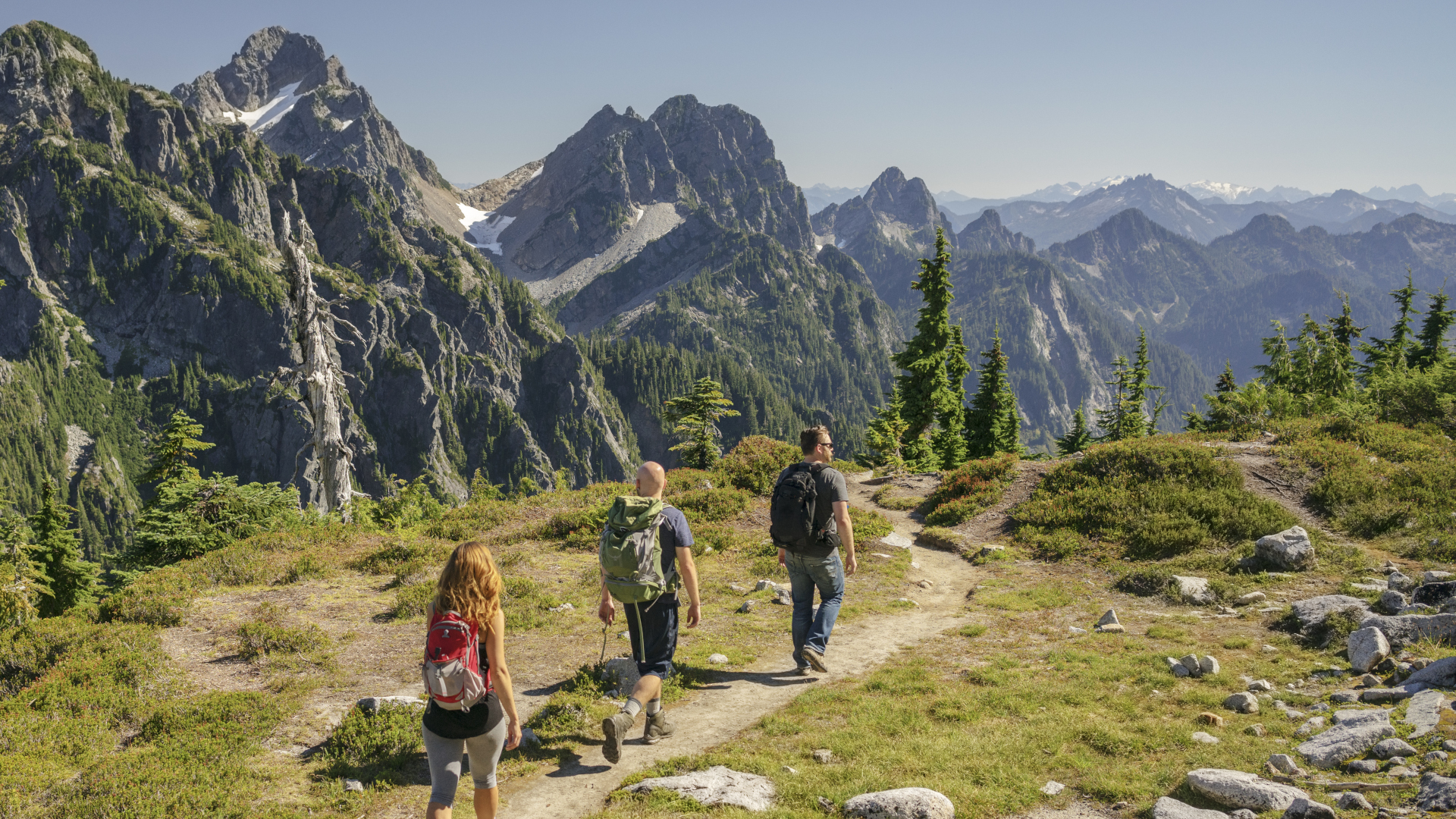
The price you pay for accessing barely-touched wilderness is of course a lot more time. For a backpacking trip, you’ll need to set aside at least the weekend, if not longer, whereas a good hike can easily fit into a half day or a couple of hours.
Hiking vs backpacking: physical challenge
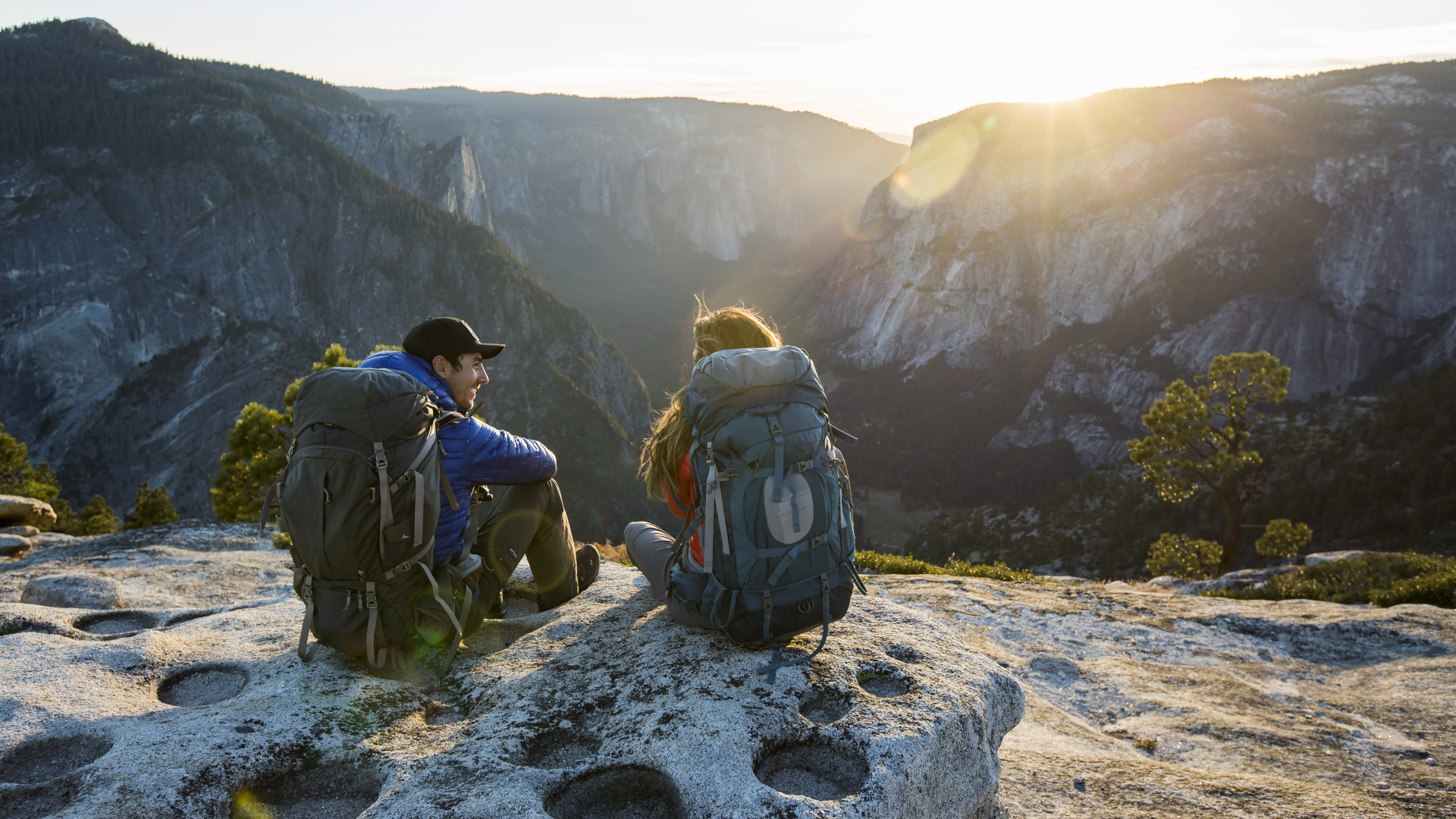
All types of hiking can be great exercise, but the extra time required for backpacking doesn’t just mean time on the clock – more time on your feet means you’ll want to be in good shape for backpacking. Plus, you’ll be carrying the extra weight of a heavy backpack, which is tougher on your legs and requires more balance. You can definitely get a great workout on a challenging, steep hike, but you’ll be more tired at the end of a day of backpacking.
Hiking vs backpacking: permits and fees
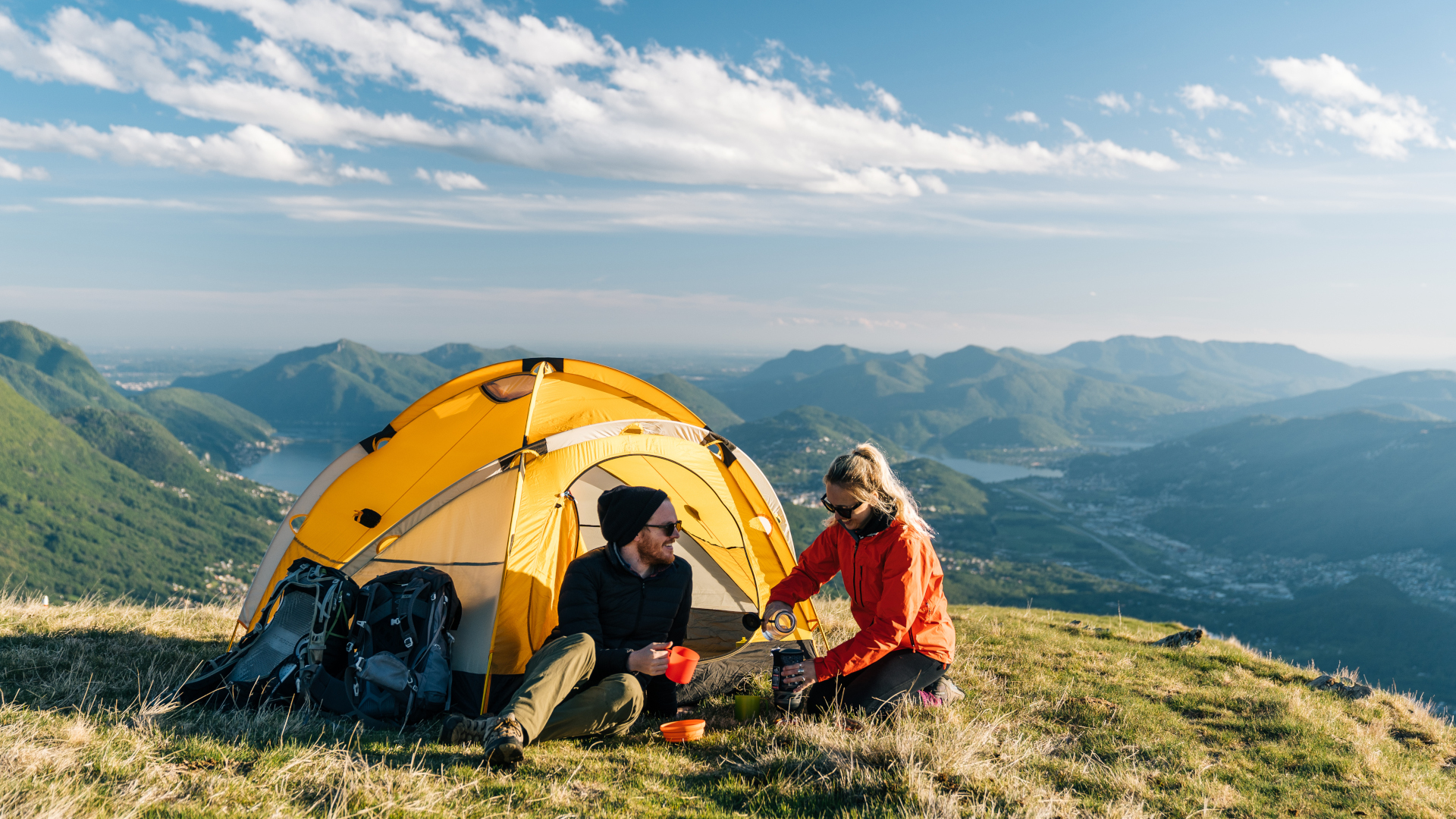
Though some hiking trails like Angel Landing – and of course National Parks – do require permits and fees for access, the majority of hiking is completely free beyond the cost of gear and doesn’t require permission, which means you can be spontaneous and do it on a budget. Because you’ll be camping when you’re backpacking, you’ll often need permits which usually come with a fee and means you’ll have to do a bit more planning to reserve campsites. However, you can always avoid fees and permits by camping on BLM land in the US, or wild camping in the UK.
| Header Cell - Column 0 | Hiking | Backpacking |
|---|---|---|
| Gear | Hiking boots, daypack, water bottle, waterproof jacket and trekking poles | Everything you need for hiking plus everything you need for camping and a much bigger backpack |
| Distance | You can only go as far as you can walk between sunrise and sunset | There are no limits to the distance you can go as long as you have the supplies and the time |
| Time | You're limited to the daylight hours available, and a hike can last as little as a couple of hours | At least one night with day's worth of hiking on either side |
| Physical challenge | Depends on the terrain, conditions and distance | Distance plus the weight of gear means a good challenge, always |
| Permits and fees | Not usually required, unless in a National Park | Camping often (but not always) requires fees, permits and planning |
Hiking vs backpacking: the verdict
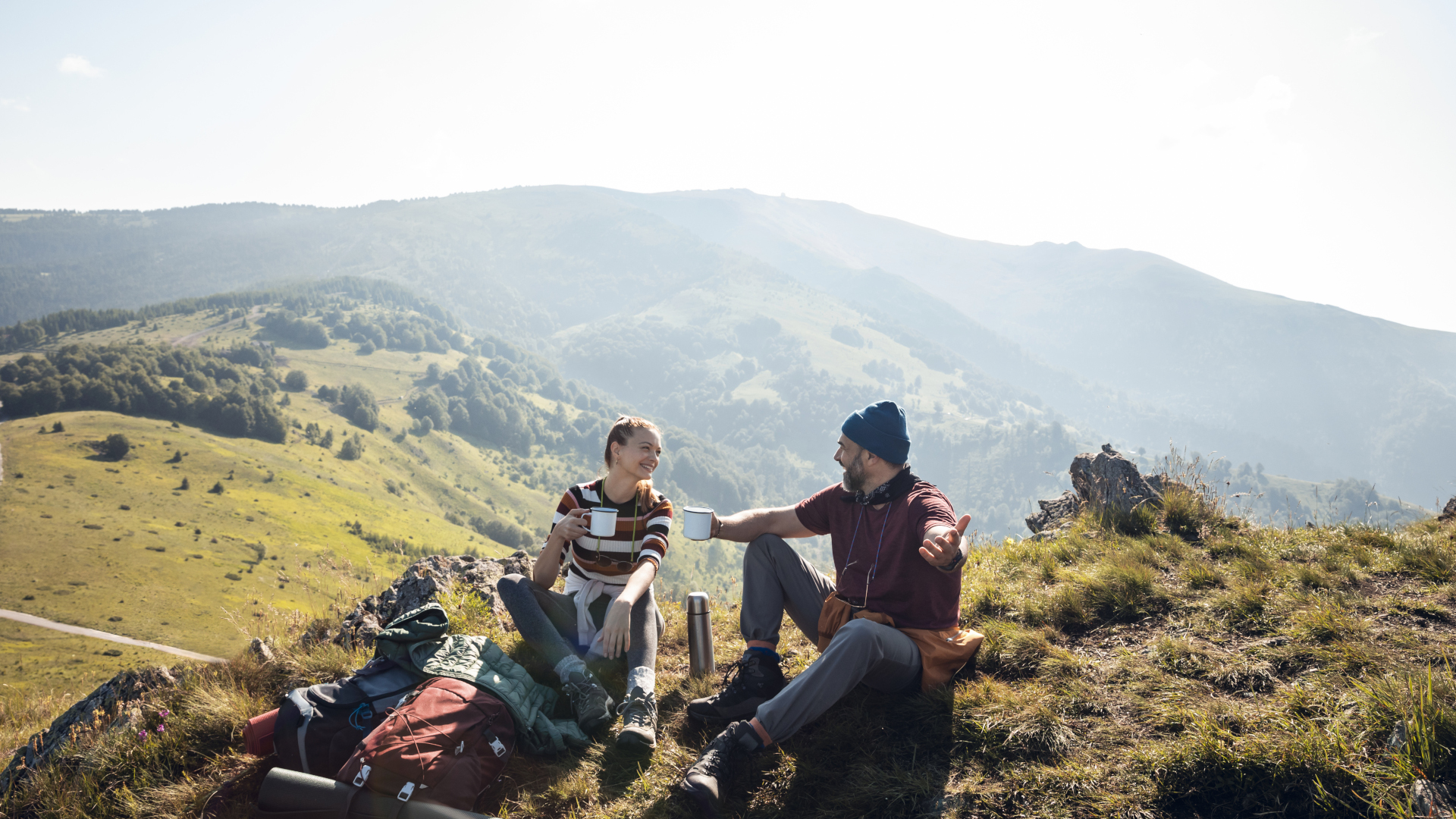
The truth is, you don’t really decide between these two activities so much as you choose where you really want to go. If you can’t get there in a day, you’ll need to go backpacking which means more gear, more time, better fitness, possible permits and a good sense of adventure. If you can get there in a day, it doesn’t mean that you can’t spend the night there, but if you don’t fancy purchasing, or carrying, a lot of gear, you’re short on time or just prefer the idea of sleeping in your own bed, go for a day hike – you’ll love it.
Julia Clarke is a staff writer for Advnture.com and the author of the book Restorative Yoga for Beginners. She loves to explore mountains on foot, bike, skis and belay and then recover on the the yoga mat. Julia graduated with a degree in journalism in 2004 and spent eight years working as a radio presenter in Kansas City, Vermont, Boston and New York City before discovering the joys of the Rocky Mountains. She then detoured west to Colorado and enjoyed 11 years teaching yoga in Vail before returning to her hometown of Glasgow, Scotland in 2020 to focus on family and writing.

